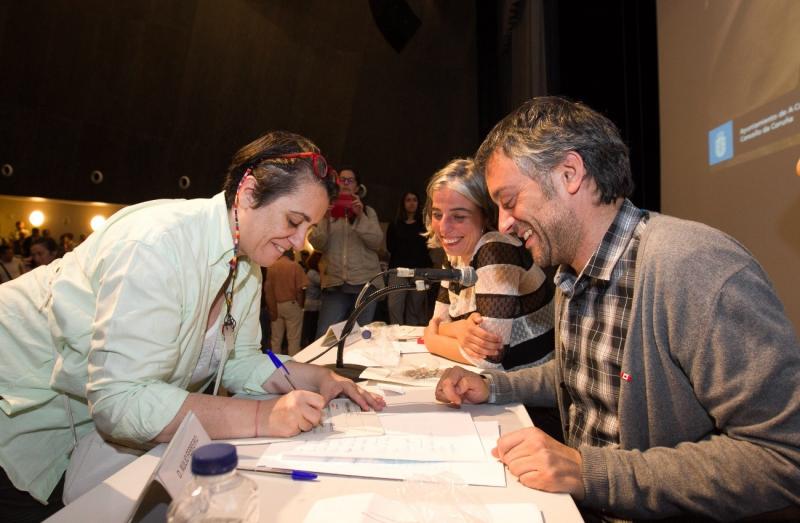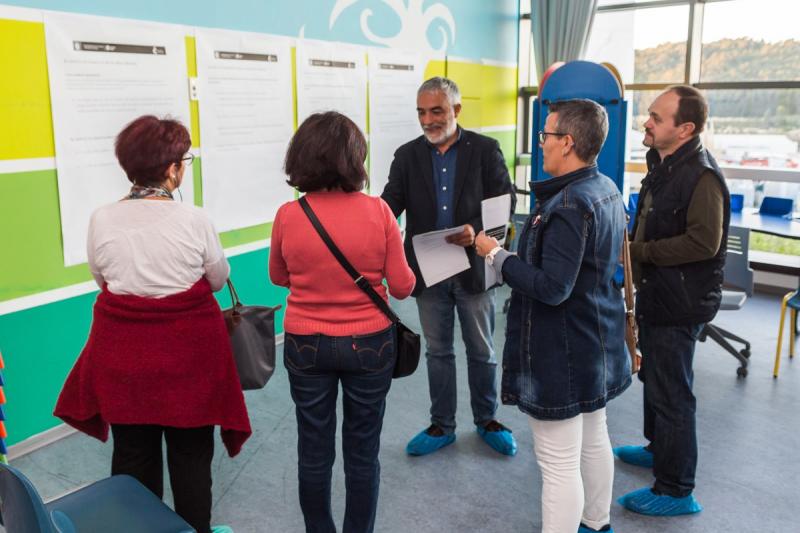
Urban gardens are urban natural spaces that have multiple benefits from an ecological point of view, as they contribute to the improvement of urban biodiversity and climate change adaptation, reducing the "heat island" effect in cities.
Urban gardens require a small initial investment and a limited maintenance cost, becoming an efficient nature-based solution to be implemented in cities, promoting a sustainable use of the public space.
"Urban gardens protect the environment and increase biodiversity in cities when using organic farming techniques and autochthonous horticultural species"
We know that important social benefits can be derived from urban gardening. Such initiatives favour the contact of citizens with the nature, with potential gains on their physical and psychological health. These potential advantages explain why more and more cities are implementing different projects related to urban agriculture.
However, when these urban gardens occupy public lands, which are the responsibility of municipalities, some considerations must be taken into account when promoting these types of initiatives.
First of all, the objectives set may be diverse, but must be consistent with the city's environmental strategies. As an example, in A Coruña, urban gardening projects promote respect for the environment and the conservation of biodiversity while facilitating the direct contact of citizens with nature.
Beneficiaries will only be able to use organic agriculture techniques, such as using natural fertilizers and growing local species of vegetables and flowers, as well as aromatic or medicinal plants. Responsible use of water and soil resources is also required, as well as adopting composting techniques for organic waste.
The municipality has equipped these organic gardens with fruit trees, scrub and flower, species which increase the urban biodiversity and protect organic production fields.
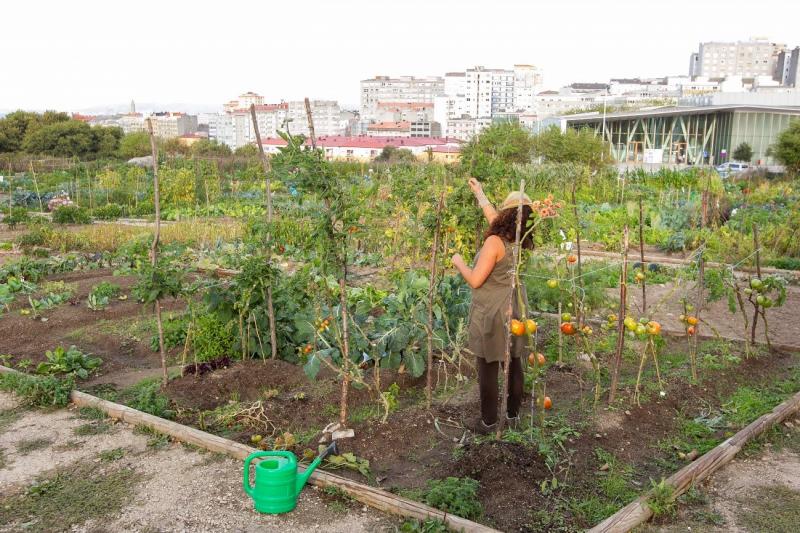
“A Coruña's urban ecological gardens aiming at promoting organic and traditional agriculture, enhancing intergenerational relationships and community empowerment, since urban green areas are collaborative managed by the neighbourhood"
A Coruña's urban gardening project promotes intergenerational relationships. Children, adults and retired people share experiences in an experimental space where they can learn from one another.
However, for this initiative to be truly democratic, specific criteria have been established to guarantee equality of access.
For example, in A Coruña, urban gardens are tax free and specific places are reserved for retired people and citizens at risk of social exclusion. Likewise, the council launched a call for educational institutions and non-profit associations to present projects with social, educational, therapeutic or environmental goals to be developed in urban gardens.
To guarantee the economic sustainability of the project the gardens are free of charges, although regular maintenance costs should be covered by the beneficiaries.
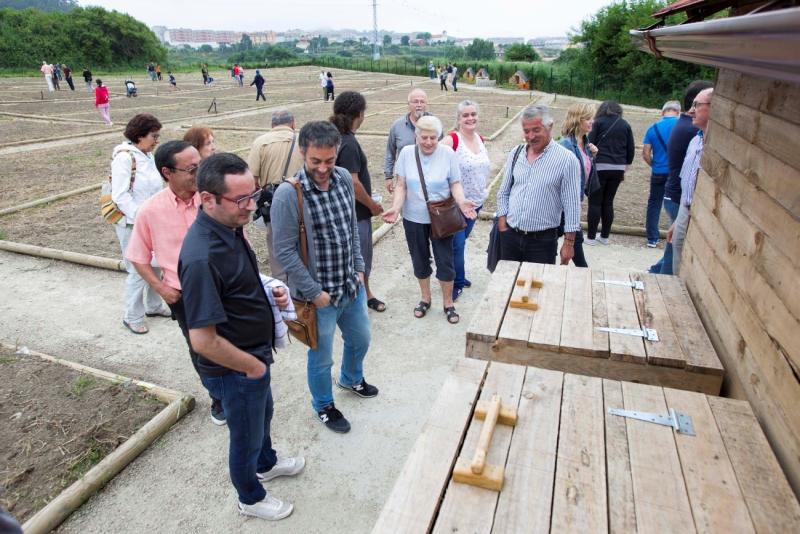
Citizen´s participation is key to achieve the co-responsibility of the neighbourhood in the management of the public spaces
To ensure the viability of the project and the active involvement of the neighbourhood, A Coruña City Council made a special effort to identify the sectors and entities potentially interested in urban gardening and reached an agreement with them about the characteristics, facilities and norms of use of these new public spaces.
Citizen participation was organized through public information processes conducted in 22 schools. In order to involve parents, teachers and students, three guided visits -with 90 participants- were taken to previous existing projects of self-organized urban gardens in the surrounding areas of the city.
"The new urban gardens had a great social acceptance, with more than 300 applications for a total of 217 parcels, thanks to the dialogue and agreement with the neighbourhood, involving 150 people in the participatory process"
The project was also presented in several neighbourhoods through public meetings organized in civic centers by the city council. In these meetings between the municipality and the neighbourhoods agreement was reached about the proper co-management of the new urban gardens including the following topics:
• The location and preparation of the gardens: The size of the parcels, the type of species to be grown, the accessibility to the garden and the separation between the gardens.
• The available resources: The ecological gardens will have a good irrigation system and a clean waste management facility. The council also agreed to provide warehouses to store the farming equipment.
• Training needs: the beneficiaries of the new urban gardens will undertake training programs which will provide knowledge and skills on organic agriculture, community participation and group decision-making. The aim of these training courses is to guarantee good relationships between the users co-managing the urban gardens.
Benefits and potentialities of the urban ecological gardens in A Coruña
The urban garden developed by one of the local kindergartens is a good example and an inspiration for these initiatives. In this project teachers, students and families grow vegetables and fruit. This school garden also has an intergenerational element involving the student´s grandparents, who are usually familiar with many of the traditional cultivation techniques. Teaching these techniques to the younger students has become a fantastic outdoor learning-by-doing experience for all the participants.
Urban gardens increase social cohesion when they favour collaboration between neighbours, who together take on the responsibility for the good management of these green areas.
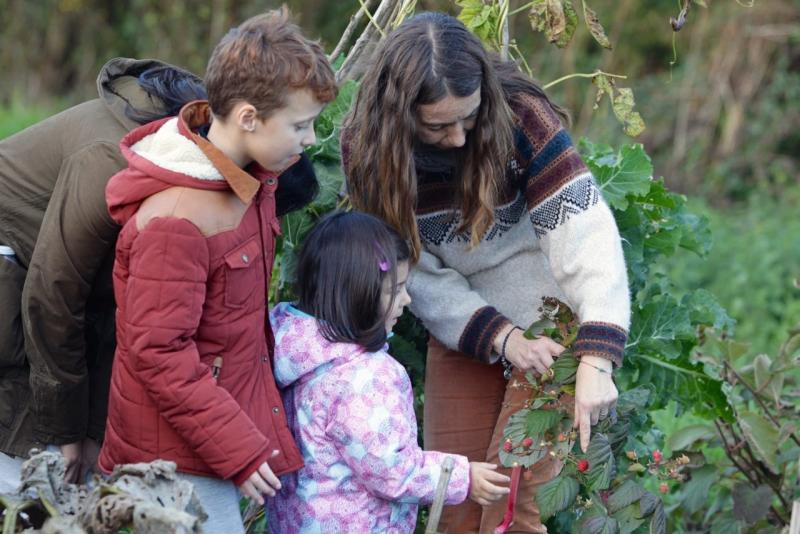
Gardening projects with people in social or labour exclusion
Urban gardens are also useful resources for people to learn new social and personal skills. In A Coruña, NGO's have developed several gardening projects targeted at those who are socially excluded, such as victims of gender violence, immigrants or the unemployed .
Urban gardens increase social cohesion when they favour collaboration between neighbours, who together take on the responsibility for the good management of these green areas.
Organic gardens contribute to the increase of urban biodiversity and green areas in the city. When seasonal foods are locally produced, the transportation footprint of the produce is reduced.
The consumption of fresh organically-produced vegetables and fruits leads to increased health benefits as pesticides and chemical are avoided. Gardening is a moderate physical activity which can combat a sedentary lifestyle.
In conclusion ecological urban gardens are natural solutions that can help cities to deal with the effects of climate change, contribute to the improvement of the environment and enhance the health and well-being of its citizens. This is talked about in the blog written for Connecting Nature called Dementia Friendly Gardens.
However, it is necessary to have the involvement of citizens both in the design and the management of these urban gardens to make them truly valued and effective.
Read this article in Galician here


